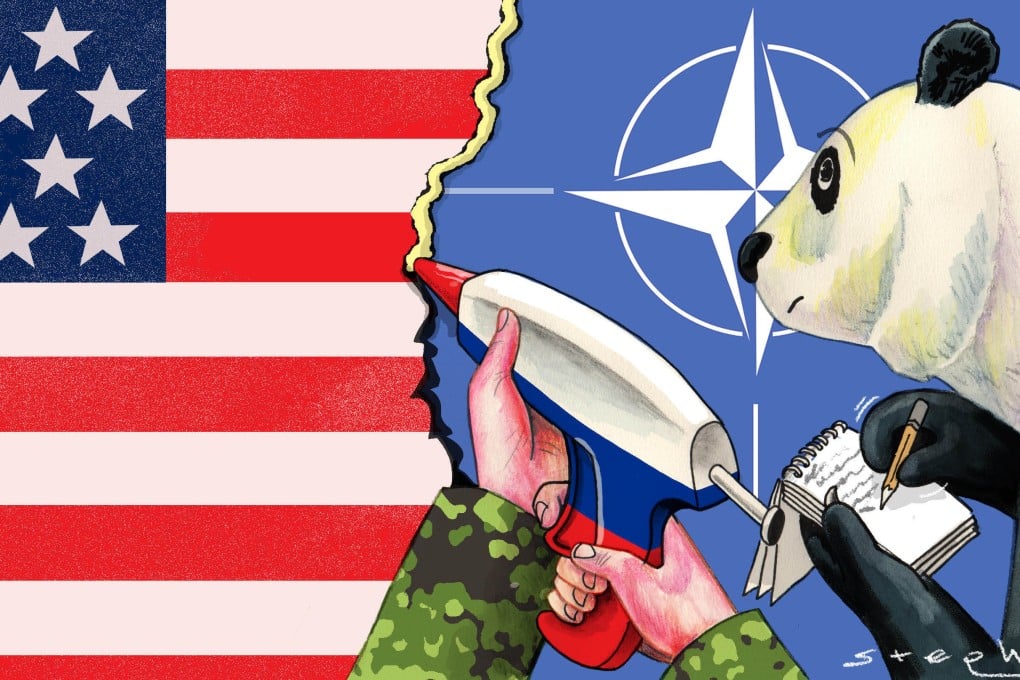Advertisement
Opinion | Reaction to Russia’s Ukraine invasion should give China pause on Taiwan
- One of the most remarkable aspects of the global reaction is the unity between the US and its European allies after a long period of being at odds
- Expectations of China attacking Taiwan could help the US overcome the resistance of its Indo-Pacific allies and partners to hosting US troops and equipment
Reading Time:3 minutes
Why you can trust SCMP
67

With the prospect of taking Taiwan in mind, it is likely that China is making note of the problems Russia is facing in its invasion of Ukraine. However, this should not be Beijing’s main preoccupation. War plans often do not pass the battleground test, and despite this Russian President Vladimir Putin might still win his reckless war.
What China should actually pay attention to is the miracle performed by the Kremlin’s aggressiveness. It has brought together the United States and its European allies in Nato after a long period of disagreement and tension.
The Biden administration’s botched withdrawal from Afghanistan, along with the signing of the Aukus agreement between the United States, Britain and Australia – which ended a multibillion-dollar contract between the Australian government and defence contractor Naval Group, majority owned by the French government – caused rifts between some members of the transatlantic security alliance.
Advertisement
Relations between the US and Nato had just emerged from a difficult phase under former US president Donald Trump, and this time of internal divisions might have prompted Putin to believe Nato was experiencing a moment of weakness. It wasn’t. Russia might have made the same mistake the French did when they had thought Britain’s power was declining following its loss of the American colonies in 1783.
The view of the US and Europe closing ranks in the face of Russia’s attack on Ukraine should worry China. An aggressive deployment of China’s navy against Taiwan could have the same effect, pushing reluctant US allies and partners in East and Southeast Asia to abandon a position of equidistance and join forces more resolutely with the US against a belligerent China.
The same goes for Pacific island nations, most of which currently do not consider China a threat. These nations are a renewed focus of the US strategy in the Indo-Pacific.
Advertisement
Select Voice
Select Speed
1.00x

